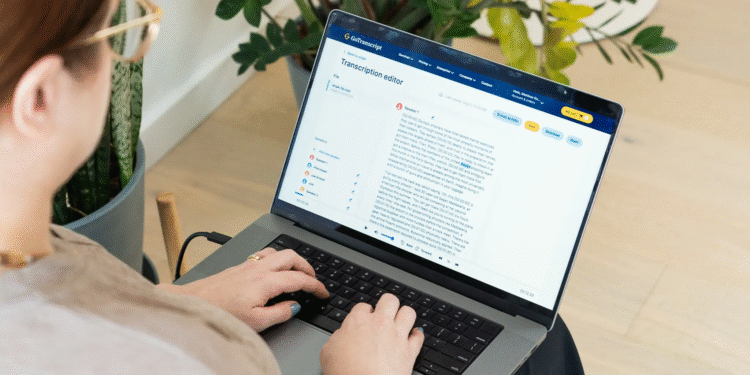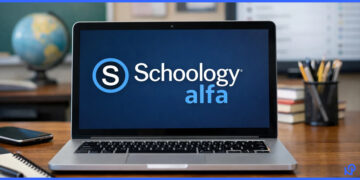In the busy world of academia, speed and precision matter most. Researchers, professors, and students are creating more audio and video content than ever, including interviews, lectures, webinars, focus groups, and beyond. But without a trusted transcript, that information is locked away in recordings, not easily analyzed or shared.
That’s where professional academic transcription services step in. These services make content accessible, searchable, and ready for analysis. Let’s explore six key ways these services are making academic work easier, faster, and smarter for US institutions today.
1. Streamlining Research Interviews and Focus Groups
Research interviews and focus groups often hold the most valuable insights in qualitative studies. But listening to hours of audio repeatedly to pull quotes or identify patterns is exhausting and inefficient.
Use case example:
A University of Michigan doctoral student conducted more than 30 interviews on access to healthcare for immigrants. Through the use of a transcription service, she received 48-hour word-for-word transcripts, enabling her to code responses effectively in NVivo and concentrate on analysis instead of playback.
With professional academic transcription services, researchers are able to:
- Save hours per interview by skipping manual transcription
- Improve data analysis with text-based content
- Maintain compliance with IRB requirements for secure data handling
And when paired with language translation company ensuring accuracy, like CCJK, researchers can even analyze multilingual interviews with full context.
2. Enhancing Lecture Accessibility and Student Learning
In the US, universities have a legal obligation to make everything accessible to all students. Lecture transcripts assist hearing-impaired students and enhance understanding for non-English speakers.
Real-world application:
At Arizona State University, engineering lectures are transcribed and provided as part of digital notes. Many students reported they retained more by reading and listening together, especially in technical subjects where complex terms are hard to catch in real-time.
Benefits include:
- ADA compliance
- Better retention through multimodal learning
- Easier review before exams or project deadlines
When lectures are also translated, international students benefit from language translation companies ensuring accuracy, offering a deeper learning experience in their native language.
3. Making Academic Conferences and Webinars Searchable
Academic conferences and webinars are frequently taped, but when they are not transcribed, most of the information gets listened to only twice. A transcript makes a 2-hour panel something that is scannable, shareable, and quotable.
Example:
A psychology symposium hosted by UCLA offered real-time transcription during sessions and downloadable transcripts afterward. This helped attendees revisit talks, quote experts accurately in papers, and cite findings.
With transcripts, institutions can:
- Boost post-event engagement
- Support content repurposing for blogs or white papers
- Enable citation accuracy and better collaboration
Professional academic transcription services ensure these transcripts are accurate and clean, helping preserve the event’s credibility.
4. Supporting Non-English Academic Projects
Many US-based scholars collaborate with researchers abroad or conduct multilingual studies. In these cases, transcription must be paired with precise translation.
That’s why using a language translation company ensuring accuracy is critical, machine translation just won’t do when academic integrity is on the line.
Case study:
A team at Stanford worked on a global education project involving interviews in Mandarin, Spanish, and French. They partnered with CCJK, known for both its professional academic transcription services and expert translation. The result? Flawless transcripts in English that retained every nuance, ready for journal publication.
This combo allows academic institutions to:
- Work across borders without losing meaning
- Publish internationally with full confidence
- Meet strict editorial standards for global journals
5. Assisting Journalists and Academic Writers
Many academic writers and educational journalists record interviews or conduct spoken note-taking while working on articles, papers, or books. Transcription helps organize thoughts, pull quotes, and maintain accuracy.
Example:
An education columnist at The Chronicle of Higher Education used transcription services for interviews with professors across the US. By turning her recordings into clean, searchable text, she streamlined writing and ensured accurate quoting.
Transcription offers:
- Organized material for easy drafting
- Searchable notes for editing and revisions
- Improved fact-checking and accuracy
Even on solo projects, professional academic transcription services lighten mental load and streamline the writing process.
6. Maintaining Academic Archives and Oral Histories
Universities and museums are increasingly saving oral histories, alumni, faculty, and community leaders’ stories. Transcripts of the recordings make them searchable and easier to digitize and preserve.
Case in point:
Harvard’s Schlesinger Library makes transcripts of interviews from the “Voices of Feminism” oral history project. These are indexed and included in digital archives so that researchers and students will have access to them decades from now.
Transcription ensures that:
- Archives are accessible and organized
- Valuable voices aren’t lost to time
- Future scholars can easily search historical content
Without professional transcription, these spoken histories might sit untouched, buried in old media formats.
Choosing the Right Service: Accuracy Matters
Not every transcription service is designed for academic quality. It is worth selecting a service with familiarity of subject matter, privacy policies in place, and, if necessary, multilingual professionals.
That’s why several US institutions rely on CCJK, a top-notch professional academic transcription services provider with more than 20 years of experience and 30,000 linguists. Not only do they transcribe but also translate academic content 100% accurately in 230+ languages, so nothing gets lost in translation.
Final Thoughts
Whether you’re capturing a lecture, reviewing world research, or keeping a scholar’s work alive, transcription is the critical backbone of today’s academic scene. You save time, amplify impact, and enhance accessibility at every step of learning and research with the proper service.
To put it simply, professional academic transcription services are not a luxury—they are a requirement.
How about unlocking the full potential of your academic material and making it more impactful, accessible, and international?
Select transcription that works as diligently as you do.













